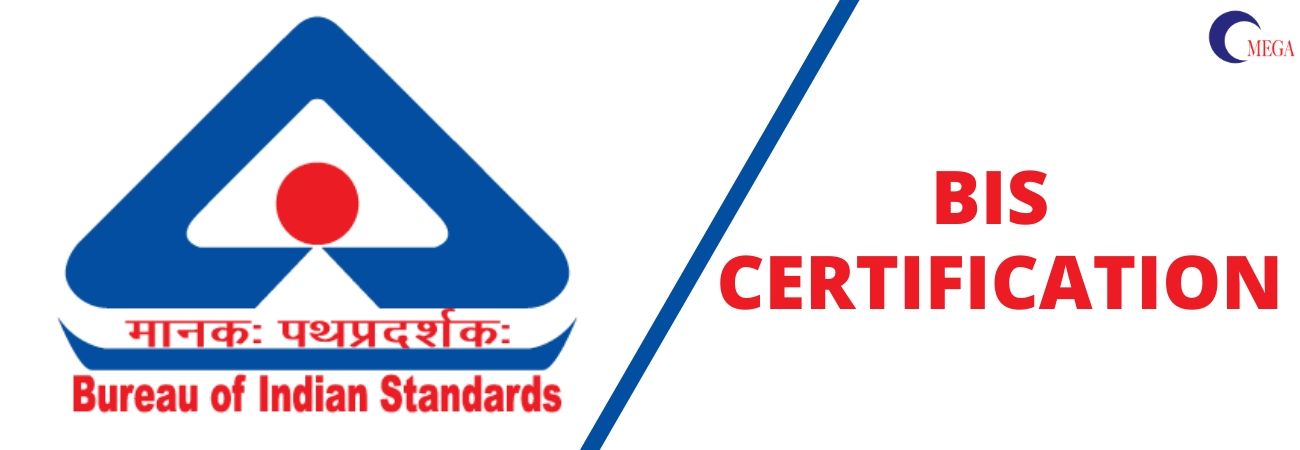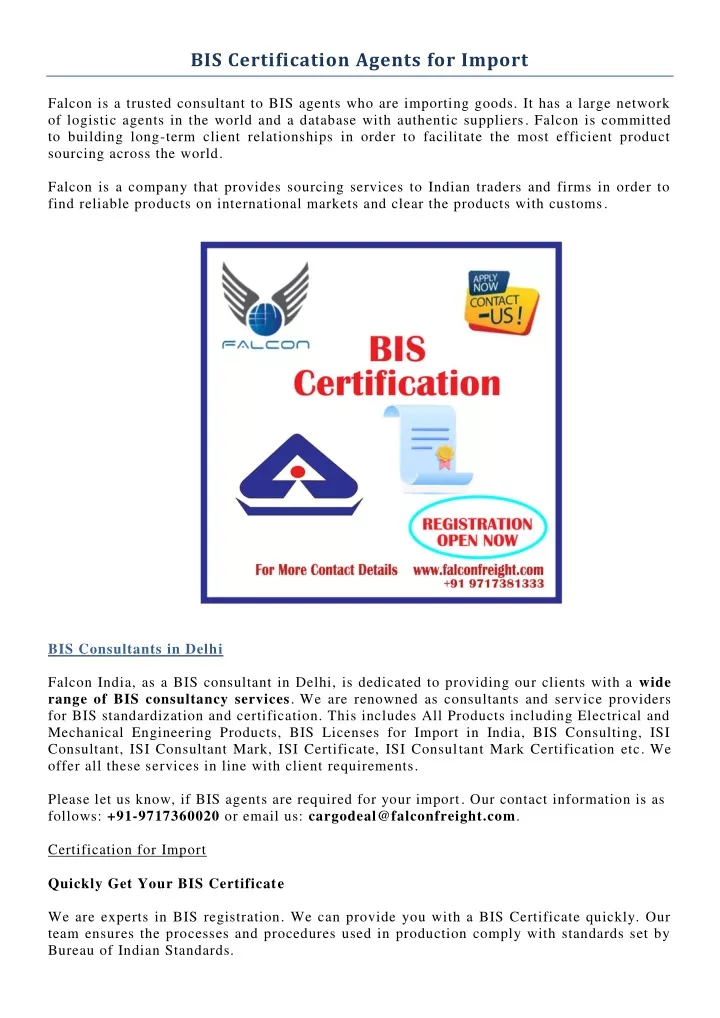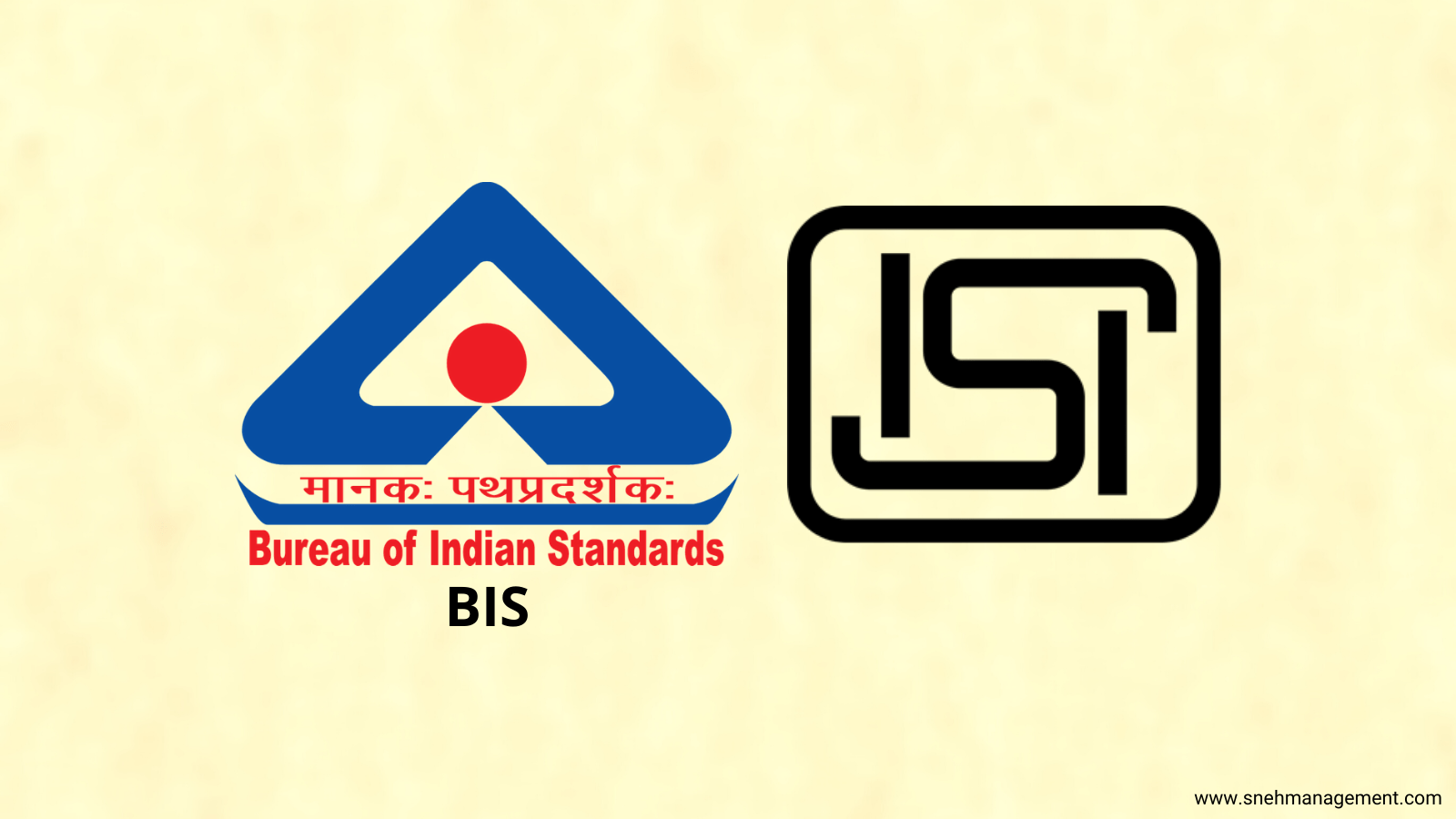html BIS Certification in India: Your Guide to Global Markets Unlocking Global Markets: Your Ultimate Guide to BIS Certification in India (Don't Miss Out!) Entering the global marketplace is a dream for many businesses, but it requires navigating a complex web of regulations and standards. In India, a crucial step for many manufacturers and importers is obtaining BIS certification . This guide provides a comprehensive overview of BIS certification, explaining what it is, why it's essential, and how to obtain it, empowering you to confidently explore international opportunities. Ignoring BIS certification can significantly hinder your ability to sell your products in India and potentially other global markets. What is BIS Certification? BIS stands for the Bureau of Indian Standards, the national standards body of India. Established in 1986, the BIS is responsible for formulating and implementing standards for various products, ensuring their quality, safety, and reliability. BIS certification is a mark of conformity that indicates a product meets the specified Indian Standard. It's essentially a stamp of approval, signifying that a product adheres to the quality and safety requirements set by the BIS. The BIS operates under the Ministry of Consumer Affairs, Food & Public Distribution, Government of India. They oversee several certification schemes, including: ISI Mark: This is the most common certification, primarily for products like electrical appliances, cement, and steel. Hallmarking: Specifically for gold and silver jewelry, ensuring its purity. Registration Scheme: For products where mandatory certification isn't required but manufacturers want to showcase adherence to standards. The specific certification required depends on the product. Understanding the relevant standards and schemes is crucial for compliance. Why is BIS Certification Important? BIS certification is not just a bureaucratic hurdle; it's a strategic advantage. Here's why it matters: Market Access: For many products, BIS certification is mandatory for sale in India. Without it, you can't legally sell your products. This opens the door to a massive consumer market. Consumer Trust: The ISI mark is widely recognized and trusted by Indian consumers. It signifies that a product has undergone rigorous testing and meets quality standards, fostering consumer confidence. Reduced Risks: Certified products are less likely to fail, reducing the risk of product recalls, liability claims, and damage to your brand reputation. International Recognition: While primarily a domestic requirement, BIS certification can also enhance your credibility in international markets, especially in countries that recognize and respect Indian standards. Compliance with Regulations: Helps businesses adhere to Indian government regulations and avoid penalties. In essence, BIS certification protects both consumers and businesses, creating a level playing field and promoting fair trade. Products Requiring BIS Certification: A Few Examples The range of products that require BIS certification is vast and constantly evolving. Some common examples include: Electrical Appliances: Electric irons, immersion heaters, and air conditioners. Electronics: Televisions, mobile phones, and LED lights. Construction Materials: Cement, steel, and PVC pipes. Food Products: Packaged drinking water and milk powder (often requiring FSSAI alongside). Automotive Components: Tyres and batteries. Toys: Toys manufactured or imported into India. It's crucial to verify whether your product requires BIS certification. You can find a comprehensive list on the BIS website . Internal Link Suggestion: You could link to a specific BIS product search tool or a list of frequently updated product categories on your own website (if applicable). The BIS Certification Process: A Step-by-Step Guide The BIS certification process can seem complex, but breaking it down into steps makes it more manageable: Identify the Applicable Standard: Determine the specific Indian Standard (IS) applicable to your product. This is the foundation of the certification process. Application Submission: Apply to the BIS with the required documents, including product specifications, test reports from accredited labs, and manufacturing process details. Factory Inspection: The BIS will conduct an inspection of your manufacturing facility to assess your production processes, quality control systems, and testing facilities. Product Testing: Samples of your product will be tested in BIS-approved laboratories to ensure they meet the relevant IS requirements. Grant of License: If your product passes all tests and the factory inspection is satisfactory, the BIS will grant you a license to use the ISI mark. Surveillance: The BIS conducts periodic surveillance inspections of your factory and testing of your products to ensure continued compliance. Key Documents Required The specific documents needed will vary depending on the product, but some common requirements include: Application form (available on the BIS website) Product specifications and technical drawings Manufacturing process details Test reports from accredited laboratories Factory layout plan List of machinery and testing equipment Quality control manual Details of raw materials used Internal Link Suggestion: Link to a detailed checklist of required documents on your website, tailored for specific product categories. Tips for a Smooth Certification Process Navigating the BIS certification process can be time-consuming. Here are some tips to streamline the process: Thorough Research: Understand the specific requirements for your product before you begin. Prepare Your Documentation Meticulously: Ensure all documents are accurate, complete, and up-to-date. Maintain a Robust Quality Control System: Implement a system to ensure consistent product quality. Use BIS-Approved Laboratories: Choose accredited laboratories for product testing. Consider Professional Assistance: Consulting with a BIS certification expert can save time and ensure compliance. Many consultants specialize in helping businesses navigate the process. Stay Updated on Regulatory Changes: BIS standards are regularly updated, so stay informed about any changes that may affect your products. Conclusion: Embrace BIS Certification for Global Success BIS certification is more than just a regulatory requirement; it's a strategic investment in your business's future. By obtaining BIS certification, you demonstrate your commitment to quality, safety, and consumer trust, which are crucial for success in the Indian and global markets. The process may seem daunting initially, but with careful planning, thorough preparation, and potentially the assistance of experts, you can unlock significant opportunities for growth. Don't miss out on the chance to expand your market reach; start your BIS certification journey today and propel your business towards global success! External Link Suggestion: Link to a relevant article or resource on exporting to India (e.g., from a trade organization or government agency). External Link Suggestion: Link to a directory of BIS-approved laboratories.
Unlocking Global Markets: Your Ultimate Guide To Bis Certification In India (Don'T Miss Out!)
```html BIS Certification in India: Your Guide to Global Markets Unlocking Global Markets: Your Ultimate Guide to BIS Certification in India (Don't Miss Out!) Entering...




